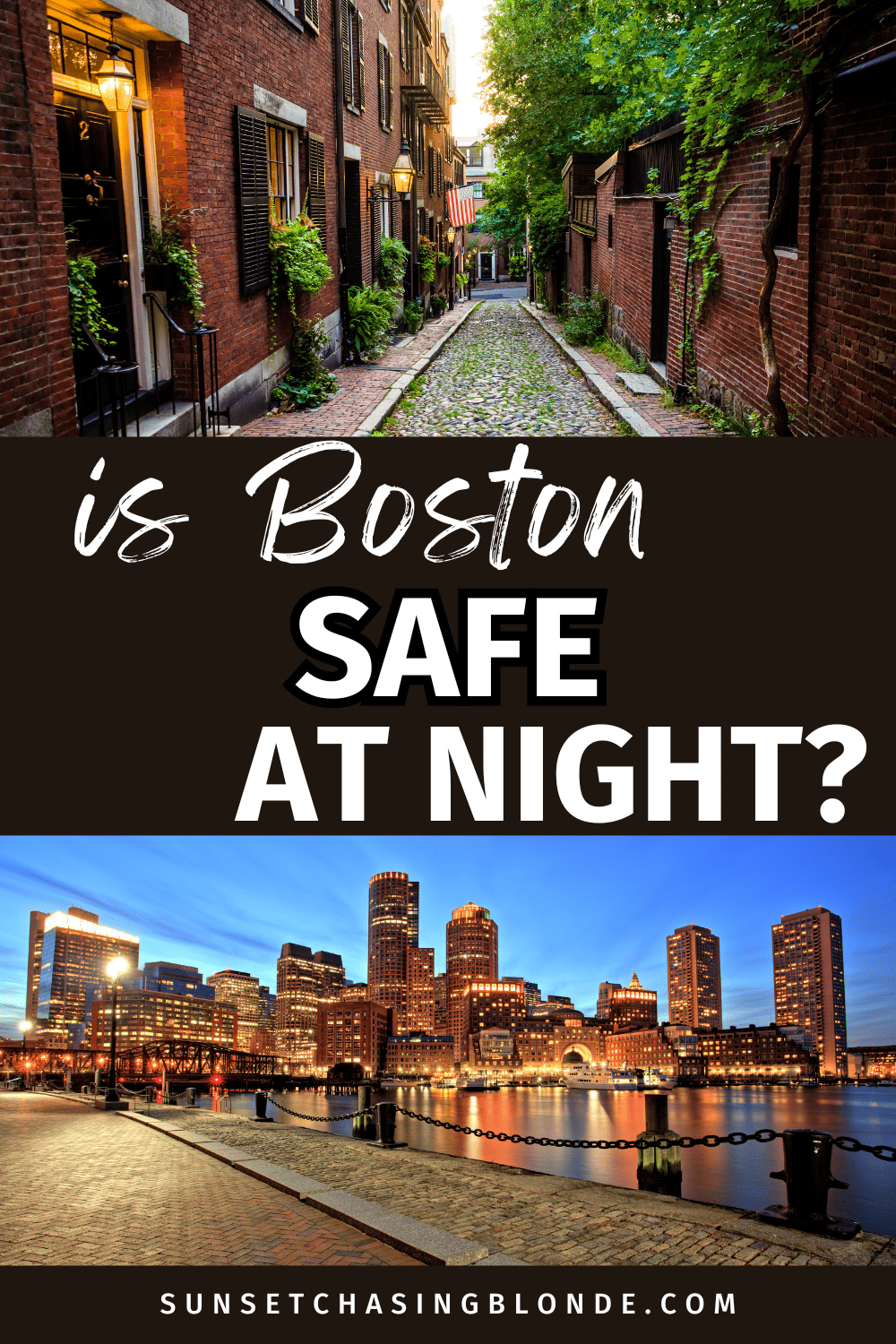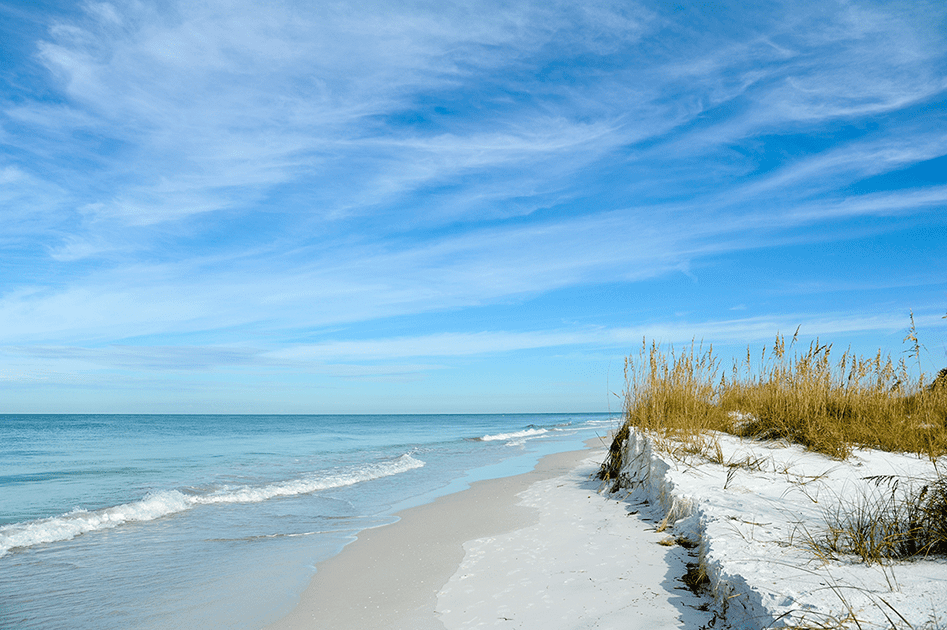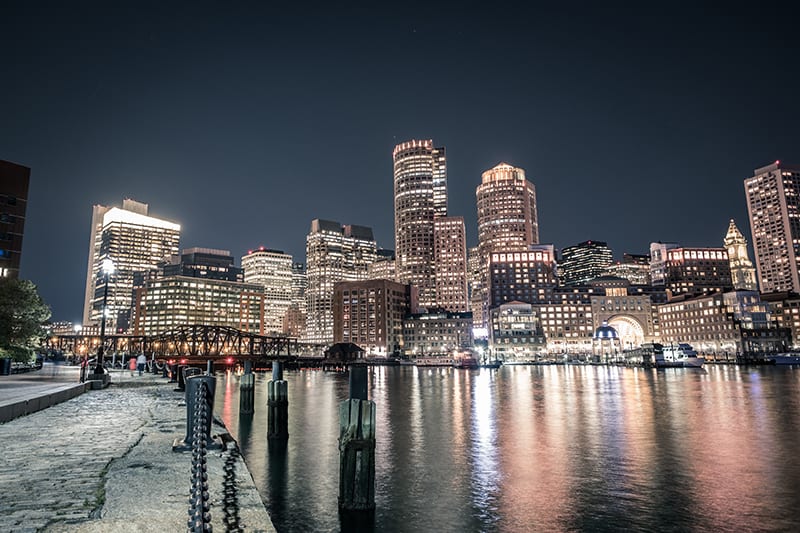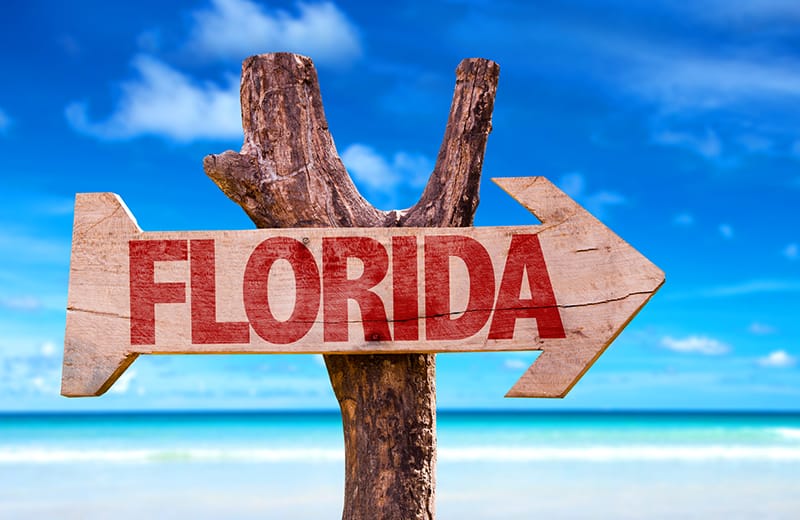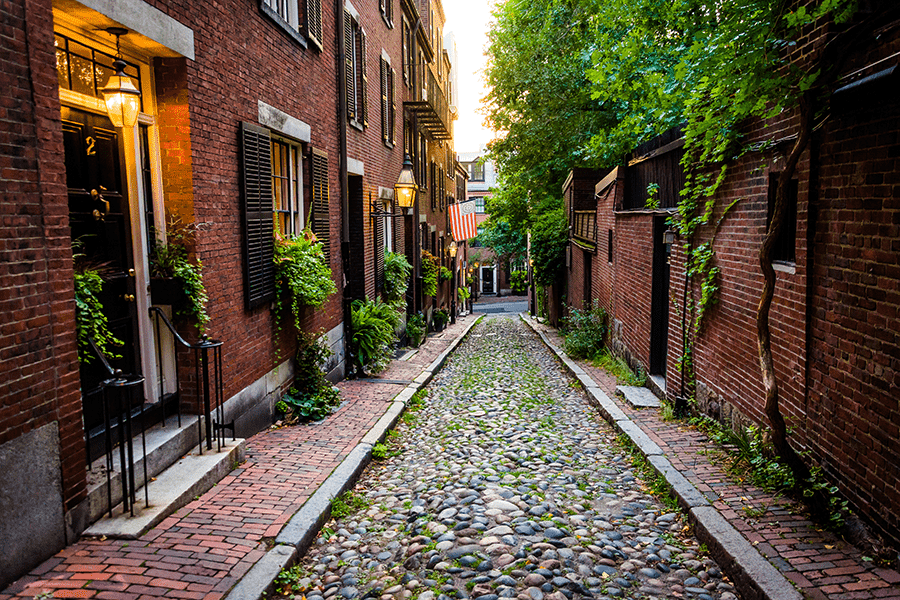Is Boston Safe at Night? (From a Former Local)
If you’re anything like me, you could spend hours or even days on end researching a city to see what it’ll be like when you get there. Will it be safe? Will it feel a little sketchy walking around at night?
Chances are, if you found this article, you’re probably already asking the question “Is Boston safe at night?”
And it’s a good question. Cheers to preparation and prevention.
As a former female resident of Boston for about two years, I can tell you that Boston is one of the best cities I’ve ever been in to walk around at night. Of course it’s still a city and there are definitely places you might not want to walk into. But overall, it’s a great city to visit whether in a group or visiting alone.
With that, let’s unpack some info on Boston’s safety and some other tips for staying safe while you’re there.
( Some of the links in this post are probably affiliate links meaning I might make a small percentage of any purchases you make. All opinions remain my own. For my disclosure policy click here. )
Is Boston Safe: Quick Guide
If you’re in a hurry, here’s a quick overview of whether or not you might feel comfortable in Boston at night:
- Boston is one of the safer cities to walk in at night, but there are areas to avoid like in any city.
- Some areas might seem safe during the day but change quickly like the area around Downtown Crossing or Chinatown.
- Boston crime rate is lower than other similar sized cities in America – but there’s still crime and you have to make sure you’re aware of your surroundings, etc.
- I suggest sticking to the central areas if you’re taking the train system, “the T,” in Boston but overall I’ve always felt pretty comfortable on most lines at night, the orange line might be the exception.
- I recommend staying in the Back Bay area – it’s central and easy to walk to most places. The Colonnade is one of my favorite hotels!
Is Boston Safe to Walk at Night?
So is it safe to walk in Boston at night? The short answer is yes – you can be generally safe. However, as with any large city there are certain precautions that need to be taken in order to stay safe.
It’s important to avoid certain areas (especially well into the evening or after midnight), stick to well-lit streets and populated areas, and generally don’t walk anywhere by yourself after a certain hour. Walking in groups is almost always better at night.
It’s crazy because some areas can be deceiving. During the day, some areas can be bustling and populated and you feel extremely safe, only to return to those same areas when the sun goes down and you feel a whole lot different. I’m looking at you Downtown Crossing area and Chinatown…
However, with some rather common sense safety tips, you can definitely still enjoy your time out exploring the city without worrying. I’ve walked around the city in various neighborhoods by myself as a woman and have been completely fine.
Boston Safety Crime Stats
Let’s get to the good part. We’ll just lead with this so you’re aware of what you’re getting yourself into on your next visit… or even if you plan on one day calling this beautiful city your home.
When it comes to safety in Boston, the city has a higher crime rate than most communities in America but not as high as some of the most dangerous cities. Boston also has a much lower crime rate than the average of other similar sized cities.
Translation: It’s safer than cities that are similar in size but it’s also a city and crimes do happen. So you have to be aware and make sure you take precautions to stay safe.
According to NeighborhoodScout, your chances of becoming a victim of violent crime in Boston are 1 in 154. And you have a 1 in 49 chance in becoming a victim of property crime.
To give some comparison to the national average, Boston has 648 violent crimes for every 100,000 residents. The national crime rate average is about 396 violent crimes for every 100,000 residents. That’s about 64% more than the national average.
But don’t fret. It’s a city and cities will always be higher than the national average as you’re comparing amongst other sized cities and suburbia. When you compare it to the 2,420 violent crimes per 100,000 residents of the most dangerous city Memphis, Tennessee, there’s a drastic difference.
All of that to say, Boston is safer than 19% of cities, but there is still a definite need to be smart and stay safe. And to know the right areas to visit and where to stay away.
Is the Boston Subway Safe?
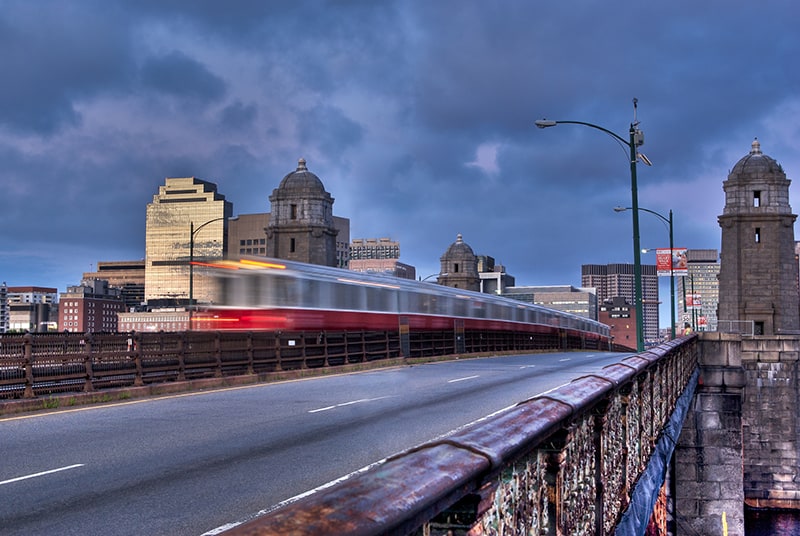
Another option instead of walking (or driving) would be to take public transit at night. So, is the T safe at night? (Side note: The “T” is what the subway system is called locally).
Generally, yes.
But it also depends on when you’re taking it and which line you’re on. Oh, and of course where you’re headed.
It’s a lot easier to get on the wrong train and accidentally find yourself in a less than safe neighborhood than it is to accidentally walk into it. Just keep that in mind.
I’ve ridden the green lines at various times at night and felt safe. I also know people who have taken all of the various trains and felt fine. So it really depends on where you’re headed. Trains stop running at around 1 AM so you probably won’t be riding “too late” at any point.
I would suggest sticking to the central areas of Boston’s train system. Also, don’t have your headphones in and be aware of your surroundings. You might have to wait for a train so just be aware of any more deserted stations if this is the case.
Call an Uber if you’re not sure. It might cost more but it’s sure worth the peace of mind.
Most Dangerous Neighborhoods in Boston
So we’ve mentioned there are certain areas you should look to avoid if you’re in Boston. But what are those areas? We’ve got a handy list for you here so you can reference on a map. Here are some of the most dangerous neighborhoods in Boston (statistically speaking):
- North Dorchester
- Roxbury
- Mattapan
- Hyde Park
- Mission Hill
- Jackson Square and Egleston, Jamaica Plain
- East Boston
- Central Boston
This isn’t an all encompassing list, nor does it mean that all areas in these neighborhoods are rough. It’s a general guidance for what areas you might want to steer clear of.
And a general reminder that just because an area isn’t on the list doesn’t make it “safe” and it doesn’t mean you can let your guard down.
Safest Neighborhoods in Boston
We’ve gone through the list of most dangerous, so what are the neighborhoods you can head to for a little extra peace of mind?
- Beacon Hill
- Back Bay
- North End
- Fenway-Kenmore
- Allston-Brighton
- Roslindale
Generally, if you’re visiting Boston, you’ll want to stay in the downtown/central areas of the city (but don’t say no to a trip to nearby Cambridge if possible!). Many of these are included on this list of the safest neighborhoods, so you should be fine.
Where is the Best Area to Stay in Boston?
We generally recommend Back Bay since it’s central to so much in Boston and there’s still quite a lot of things to do at night. The Harbor area is also a great area to stay depending on what you’re looking to do while visiting.
In need of a hotel? Check out a couple of our highly recommended hotels in Boston:
- The Colonnade – great rooms and great location in Back Bay
- Boston Marriott Long Wharf – great views and prime location located along Boston Harbor
FAQ about Boston Safety
We’ve compiled some popular questions visitors ask that you might have about whether it’s safe in Boston at night or just general Boston safety questions. Hopefully this list is helpful for you!
Generally, yes. This is one of the safest neighborhoods in Boston. It’s central and there’s lot of restaurants, shops, tourist spots, and more in the area.
Generally, yes. But there are some areas we’d suggest avoiding. Best to avoid after 11pm or so.
Depends on when at night. If it’s in the 8-9pm time frame, you’re likely okay. There should still be enough foot traffic. After that time frame, it’s generally suggested to avoid, especially alone.
Yes, this is one of the safest neighborhoods in Boston. There are usually a lot of restaurants and shops open at night here as well.
We recommend staying in the Back Bay area for a more central location. This area has plenty of activities to do and is generally safer and more populated at night than other areas in Boston.
Of course! Boston is a great city for solo travel, even as a woman. It’s important to be aware of your surroundings and use some safety precautions, but it’s a great solo travel destination.
Generally, we suggest avoiding North Dorchester, Mattapan, and Roxbury. Take a look at the most dangerous neighborhoods list above.
Wrapping Up: Is Boston Safe at Night?
Overall, Boston is a safe place to travel at night and it’s also a fantastic travel destination. While there are certain areas that should be avoided in the evening hours such as North Dorchester, Mattapan and Roxbury, these neighborhoods can easily be avoided by sticking to the more central and populated parts of town like Back Bay or Beacon Hill.
If you follow basic safety precautions while traveling through areas at night – staying in well-lit places with other people around and avoiding isolated spots – then you’ll generally be just fine.
As always, if you don’t feel safe – leave the situation! Call the Uber or switch hotels. It might cost more money in the short-term but it’s definitely worth it if you don’t feel comfortable or safe.
Let us know your experiences visiting Boston – did you feel safe? Were there any areas you should have avoided but didn’t?
Visiting Boston soon? Pin this image for later:
